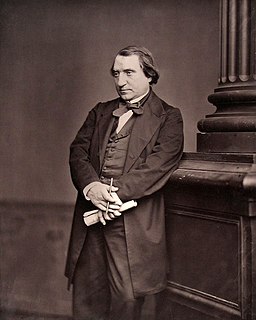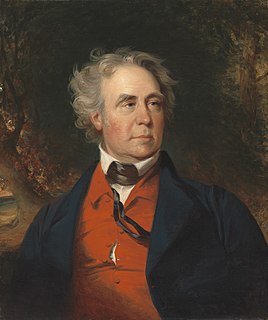A Quote by John Quincy Adams
The great object of the institution of civil government is the improvement of those who are parties to the social compact.
Quote Topics
Related Quotes
There is one view of the subject which ought to have its influence on those who espouse doctrines which strike at the authoritative origin and efficacious operation of the Government of the United States. The Government of the U.S. like all Governments free in their principles, rests on compact; a compact, not between the Government & the parties who formed & live under it; but among the parties themselves, and the strongest of Governments are those in which the compacts were most fairly formed and most faithfully executed.
The establishment of our new Government seemed to be the last great experiment for promoting human happiness by reasonable compact in civil society. It was to be, in the first instance, in a considerable degree a government of accommodation as well as a government of Laws. Much was to be done by prudence, much by conciliation, much by firmness.
The States then being the parties to the constitutional compact, and in their sovereign capacity, it follows of necessity, that there can be no tribunal above their authority, to decide in the last resort, whether the compact made by them be violated; and consequently that as the parties to it, they must themselves decide in the last resort, such questions as may be of sufficient magnitude to require their interposition.
It is federal, because it is the government of States united in a political union, in contradistinction to a government of individuals, that is, by what is usually called, a social compact. To express it more concisely, it is federal and not national because it is the government of a community of States, and not the government of a single State or Nation.
In short, it is the greatest absurdity to suppose it in the power of one, or any number of men, at the entering into society, to renounce their essential natural rights, or the means of preserving those rights; when the grand end of civil government, from the very nature of its institution, is for the support, protection, and defence of those very rights; the principal of which, as is before observed, are Life, Liberty, and Property.
The opinions of men are not the object of civil government, nor under its jurisdiction; that to suffer the civil magistrate to intrude his powers into the field of opinion and to restrain the profession or propagation of principles on supposition of their ill tendency is a dangerous falacy, which at once destroys all religious liberty...

























